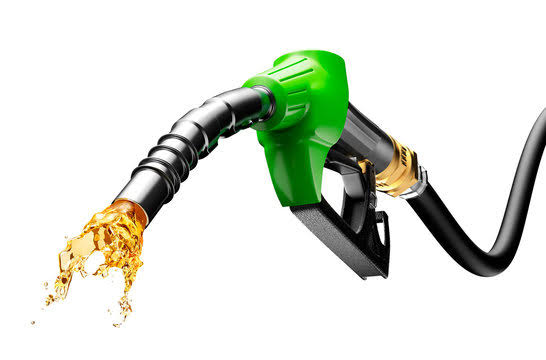The Federal Ministry of Finance has revealed that Nigeria has officially started selling of crude oil and refined petroleum products in naira.
The is according to a statement from the Ministry of Finance on Saturday, which said the Minister of Finance and Coordinating Minister of the Economy, Wale Edun, announced that the implementation of this a significant initiative, approved by the Federal Executive Council (FEC), started on October 1, 2024.
Speaking after a post-commencement review meeting, chaired by the Minister, Edun disclosed that key stakeholders had assured of the commencement of this strategic initiative.
The review meeting was held to assess the progress of the “Crude Oil and Refined Products Sales in Naira” initiative, and the consensus reached highlighted the government’s commitment to seeing the plan through.
“The sale of crude oil and refined products in Naira has officially begun as directed by the Federal Executive Council. This initiative marks a bold step towards economic sustainability and currency stability,” Edun stated.
Last month, the Technical Sub-Committee on Domestic Sales of Crude Oil in Local Currency revealed that President Bola Ahmed Tinubu had given the green light for crude oil to be sold to local refineries in Naira. This decision, according to the committee, will also apply to the purchase of petroleum products.
According to the committee, from October 1, 2024, the Nigerian National Petroleum Company (NNPC) commenced the supply of approximately 385,000 barrels per day (bpd) of crude oil to the Dangote Refinery, with payments made in Naira. This partnership is expected to reshape Nigeria’s oil and gas landscape, as the Dangote Refinery, located in Lekki, Lagos, is Africa’s largest oil refining facility, valued at over $20 billion.
The government had previously outlined that this initiative would reduce pressure on the Naira, eliminate unnecessary transaction costs, and ensure a steady supply of petroleum products across the country. This innovative approach is expected to improve the country’s macroeconomic indicators, including foreign exchange reserves.
Chairman of the technical committee and FIRS boss, Zacch Adedeji, had earlier explained that under the initiative, crude oil would be sold to the Dangote Refinery in exchange for refined petroleum products such as Premium Motor Spirit (PMS) and diesel. These products would then be supplied to the domestic market for distribution, with payments also made in Naira.
“Diesel will be sold in Naira by the Dangote Refinery to any interested off-taker, while PMS will only be sold to NNPC, which will then distribute it to various marketers,” Adedeji explained. Additionally, all regulatory costs associated with the operation, including fees for the Nigerian Ports Authority (NPA) and the Nigerian Maritime Administration and Safety Agency (NIMASA), will be paid in Naira.
In a bid to ensure a seamless implementation of the initiative, a one-stop shop is being established to coordinate services from regulatory bodies, security agencies, and other stakeholders involved in the process.
The meeting, which solidified the operational framework, brought together notable figures including the Minister of State for Petroleum (Oil), the Special Adviser to the President on Revenue, the Special Adviser to the President on Energy, the Chief Executive of the Nigerian Midstream and Downstream Petroleum Regulatory Authority (NMDPRA), representatives of the Dangote Group, and top management of the NNPC, led by the Group Chief Executive Officer (GCEO).
This strategic initiative, introduced by President Bola Ahmed Tinubu’s administration, is poised to have far-reaching impacts on Nigeria’s economy. As the country navigates the challenges of global energy markets, the naira-for-crude plan is seen as a critical step in fostering economic growth, stability, and self-sufficiency. It is expected to reduce the nation’s reliance on foreign exchange transactions for crude oil sales, ultimately positioning Nigeria for long-term success in the global energy landscape.

